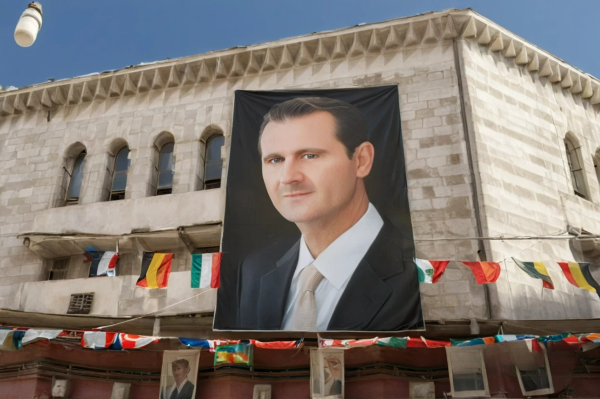Iran’s Plan to Strike Back Against the U.S.
Iran’s Military Preparations Following U.S. Attacks
Loading...

Counter-terrorism prosecutors were unsuccessful in their attempt to annul the warrant, arguing that al-Assad's immunity as head of state should protect him.
According to lawyers, a Paris appeals court has upheld an arrest warrant issued for Syrian leader Bashar al-Assad for alleged complicity in war crimes during the country's civil war. French anti-terrorism prosecutors sought to have the warrant annulled, arguing al-Assad has immunity as a serving head of state, but the court ruled Wednesday that the warrant remains valid.
"This is a landmark decision. It's the first time a national court has acknowledged that a sitting head of state does not have complete personal immunity," said lawyers Clemence Bectarte, Jeanne Sulzer, and Clemence Witt.
Mazen Darwish, director of the Syrian Center for Media and Freedom of Expression, commented that the decision underscores that there is no immunity for crimes against humanity and the use of chemical weapons against civilians.
The case against al-Assad is significant as victims of Syria's civil war seek accountability for government atrocities. The arrest warrant, issued in November, also includes al-Assad's brother Maher and two Syrian generals, accused of complicity in war crimes such as chemical attacks in Douma and East Ghouta in 2013.
Despite al-Assad's continued control over Syria, refugees who settled in Europe have initiated legal actions to hold Syrian military and government members accountable. The 2013 chemical attacks resulted in over 1,000 deaths and numerous injuries, with international condemnation having limited impact on the Assad regime's prosecution of the war.
In May, anti-terrorism prosecutors challenged the arrest warrant against al-Assad, asserting that acting heads of state enjoy absolute immunity. However, they did not contest the warrants for al-Assad's brother and the Syrian generals Ghassan Abbas and Bassam al-Hassan.
Although the likelihood of those named being arrested and brought to France is low, advocates believe the warrants send a message of accountability, especially as regional governments and organizations begin to normalize relations with the Assad government after years of isolation.
Iran’s Military Preparations Following U.S. Attacks
Troops remain in five strategic locations, raising fears of renewed tensions and long-term occupation.
Opposition forces have taken control of the capital after a significant offensive. Here is how it unravelled.
